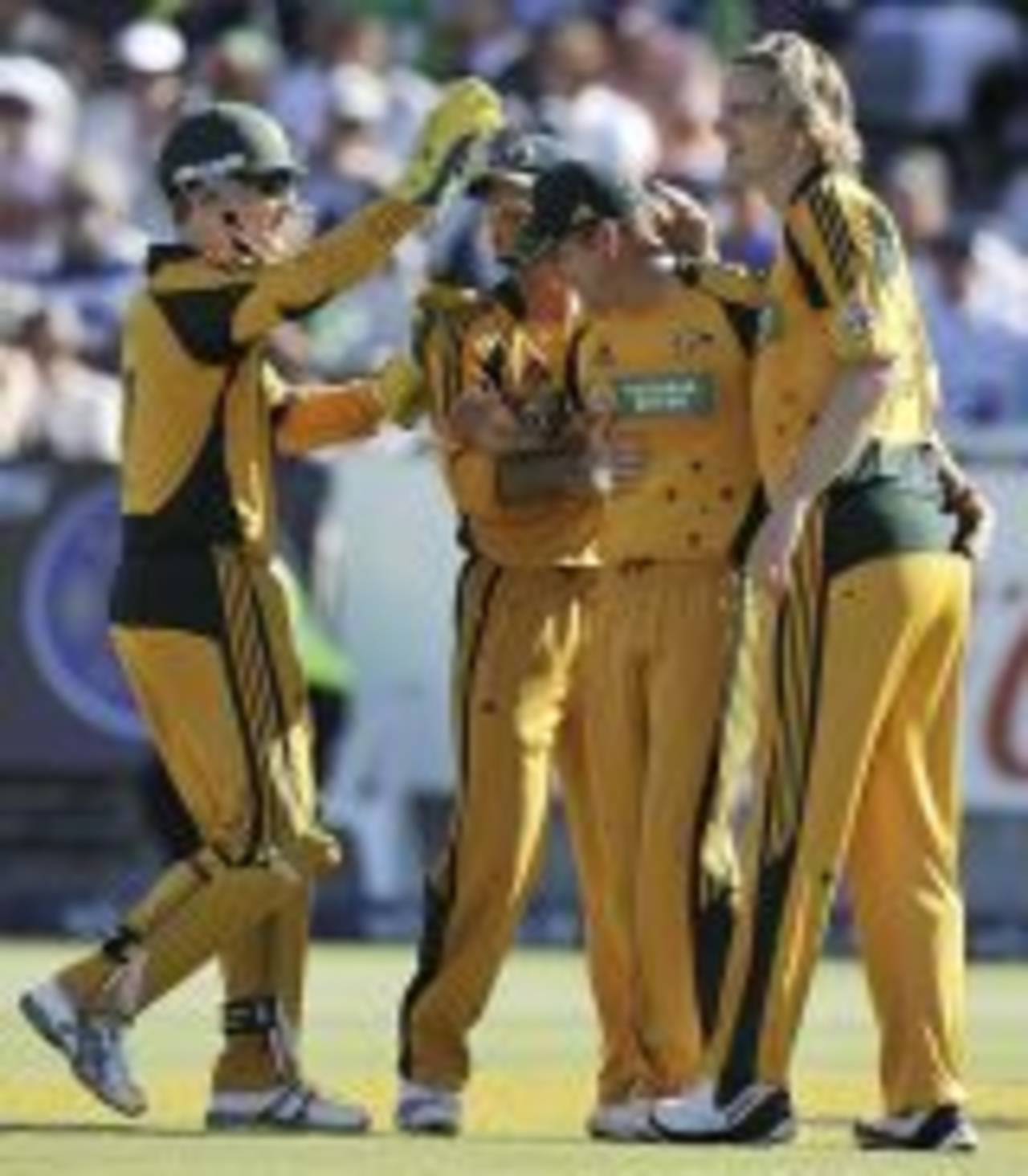Cricket in the time of IPL
There will come a day though when a player will strongly disagree with the need for rehabilitation or rest and will challenge that sort of edict
Michael Jeh
Feb 25, 2013, 10:54 PM

AFP
So Cricket Australia has pulled Nathan Bracken, James Hopes and Shane Watson out of the IPL in order to manage their niggling injuries. It may well be the right thing for the country and all three players have the maturity and commonsense to not bleat too loudly (yet). As fringe players, they understand that their brand value is enhanced by playing international cricket.
It begs the inevitable question though: at what point will we begin to see the first cracks opening up between players and their home countries' boards? It’s unlikely that India will ever have to face this problem because the IPL is their very own cash cow. Other countries though, despite overtly supporting the BCCI’s money-spinner (if indeed it does make money which I suppose it does), might soon find themselves in a situation where they are at odds with their players if they exercise their right to withdraw them from IPL commitments.
One could argue that the first cracks have already opened but have been hastily papered over. Sri Lanka have been forced to bow to player pressure and accede to the superior pulling power of the IPL. The West Indian administrators have an uneasy truce with the whole concept, conscious that their main stars can afford to call their bluff because their depth does not allow for players like Gayle, Chanderpaul, Sarwan and Bravo to be left out of the national team if they are forced to choose cash over country.
On an individual basis, Shaun Tait has already expressed his displeasure over not being cleared to play in the IPL. Tait doesn’t quite have enough aces in his hand to call the shots so he is forced to accept that decision for the time being. Now with the latest situation involving Bracken, Hopes and Watson, the murmurs of discontent will eventually rise to a deafening crescendo sometime in the future. It’s a bold prediction but I can see it happening soon enough.
It’s clear that when it comes to making quick money, the players obviously have a different set of priorities to the national selectors. These three players are not silly enough to cruel their international cricket prospects just yet so they will reluctantly accept the verdict from Cricket Australia. There will come a day though when a player will strongly disagree with the need for rehabilitation or rest and will challenge that sort of edict. Depending on seniority and his own sense of whether he can afford to roar his displeasure, that situation may become quite heated.
It might even prematurely push some players into retirement so they can then be freed from all trade restrictions on their IPL contracts. The performances of Warne, Gilchrist and Hayden prove that being retired from international cricket does not mean you can’t cut it in IPL. If anything, they are fresher and stronger. The franchise owners themselves may be tempted to offer incentives to hasten early retirement. Why wouldn’t they? They have little to gain from big names like Gilchrist or Hayden being lost to national duty. Golden handshakes may become more common.
It will create a situation where injuries or workload concerns are pushed underground, where players don’t always confide in their national team’s medical staff about niggling injuries or exhaustion. From their perspective, it might be easier to mask the symptoms and try to hobble through the IPL. In cases like the Flintoff example, there may one day be post-mortems and blame games which put the physiotherapist and team doctor under pressure for not spotting the signs of injury. Perhaps that close, confidential bond that currently exists between players and medical staff will suffer. If in doubt, the medicos might be instructed to err on the side of caution and that will infuriate players who honestly don’t think they’re injured.
What about medical staff in IPL teams? Will they be under subtle pressure to underplay an injury (especially stress fractures or 'wear & tear' injuries) to nurse someone through a few T20 games? Their loyalty is to their IPL team, not the national team so what's wrong with patching somebody up to get through a short tournament. Medical opinions can differ - I can see some interesting conversations between doctors and physio's from opposite sides of the fence. "When did you know he was injured, how bad was it, why didn't you rest him earlier?"
Agents too will play their part in muddying the waters. Presumably, their commissions depend on the IPL contracts being honoured so they will be exerting their influence on the player to ensure he plays IPL. Do they have a duty to their client (the player), the national team or to themselves? In most cases, I can’t see the country’s interest coming first!
What happens in situations where the home states (eg: NSW) can see some benefit in denying the IPL team the use of their player, hoping that if that team does not make the Champions League stage, he is then available for their home state/provincial team? With that much money at stake, they have every good reason to want their star player wrapped in cotton wool and save him from injury. If that means his IPL team doesn’t qualify, gosh, wouldn’t that be convenient?
The thing about conspiracy theories is that they don’t always have to be true to create bad blood or mistrust. Trust is often the first casualty when relationships sour. Players, doctors, administrators, franchise owners, television moguls and fans are all stakeholders in this relationship one way or another. The best Powerplays may yet happen off the field and on the physio’s table!
Michael Jeh is an Oxford Blue who played first-class cricket, and a Playing Member of the MCC. He lives in Brisbane